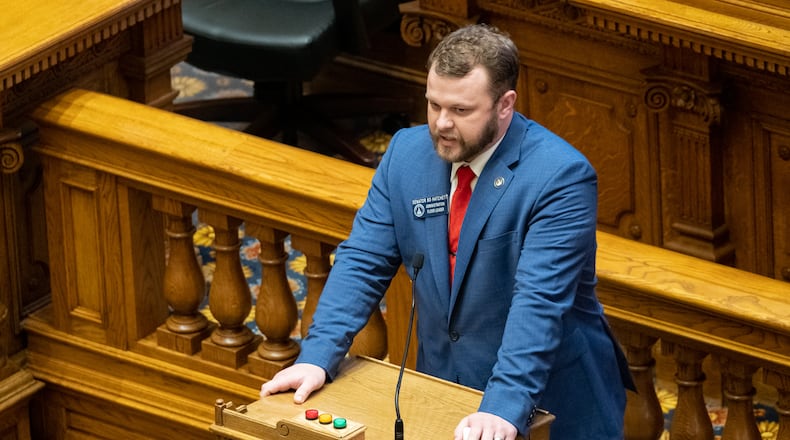An effort to increase mandatory penalties for those who recruit gang members passed a Senate panel on a party-line vote.
The legislation is part of a package of bills backed by Gov. Brian Kemp that aim to reduce the rate of crime in Georgia.
Senate Bill 44 would require judges to sentence anyone convicted of recruiting members to a street gang to five to 20 years in prison. That time would be served after any additional sentence for a gang-related crime, and the recruitment sentence could not be reduced for good behavior.
The proposed legislation would increase the minimum sentence for gang recruitment to at least 10 years if the person being recruited is under 17 or has a mental disability.
SB 44 also would take away a judge’s option to sentence those convicted of gang recruitment to a fine of between $10,000 and $15,000 to avoid time in prison.
Members of the Senate Judiciary Committee voted 6-3 to pass the bill, with Republicans voting in favor of the legislation.
Supporters of the bill, sponsored by Clarkesville Republican state Sen. Bo Hatchett on behalf of Kemp, say mandatory-minimum sentences are the best way to deter people from joining gangs.
“I’m not always for mandatory minimums, but in this case, you’re talking about a group of individuals that are targeting children and trying to recruit them into a criminal enterprise,” Hatchett said. “And you’re taking away their innocence, you’re taking them away from their chance at life, and not only that, you’re taking them away from their parents. And that, in my opinion, is something that is worthy of a mandatory-minimum (sentence).”
Opponents of the legislation said bills like SB 44 are a departure from the overhaul of Georgia’s criminal justice system under then-Gov. Nathan Deal, which included taking a step back from state laws dictating sentencing.
Mazie Lynn Guertin, a lobbyist for the Georgia Association of Criminal Defense Lawyers, said the state already has stiff penalties for gang-related crimes, leading to some of the highest incarceration rates in the nation. She told senators that instead of increasing the minimum sentences for crimes, lawmakers should focus on making it more affordable to live in the state and improving education and health care.
“When you look at an analysis of incarceration and crime rates, you see that high incarceration rates are not a rational response to high crime rates, but they are a politically expedient response to fear,” Guertin said. “Mandatory minimums don’t deter crime. The research is clear that people, in reality, don’t look to see what the criminal code says, find the mandatory penalty and become discouraged by that penalty (from pursuing) whatever behavior it is they were going to pursue.”
About the Author
Keep Reading
The Latest
Featured


